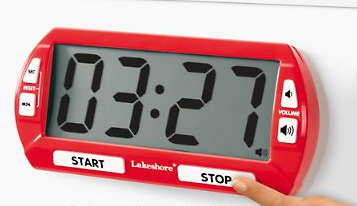Timing

NITOC 2017 Debate Timing Guidelines
A Simple Idea
Stoa is proud to have some of the finest debaters in the country. We appreciate the excellence and integrity that you bring to our forensics. However, in the last year, we have observed an increasing trend of debaters going over time in speeches, by ten to even sixty seconds. If a team consistently takes an extra 15 seconds per speech, they gain an additional two minutes, with the judge, during the round. We all know what an advanced debater can do with an extra minute or two of speaking time in a round.
A Simple Truth
Stoa has very few rules, by design. We want you to have the greatest possible latitude to explore your topic and develop your argumentation. But time limits on speeches are one of the few things specifically set out in the Stoa rules. They ensure the competitive equity in the round.
Here is the text from the Stoa rule which is the standard for NITOC:
"Once time is expired at the end of a speech or cross-examination, a speaker may be allowed to complete a sentence, but should not start a new thought."
A Simple Plan
In addition, please take note of the following self-timing policy for all forms of debate at NITOC 2017.
In order to keep the tournament on time, all debaters at NITOC—Parli, TP and LD—must be ready to self time. Each debate team must have a working time piece in every round.
Debaters should set the timer to time down and to provide an audible alarm when time is over. You may not turn off the timer and continue talking.
Opponent(s) may also set a timer and are encouraged to do so. The opponent(s) timer can also be set to countdown mode and may have an audible alarm.
Debaters will have a timer assigned for Debate Finals.
Please help us make NITOC conflict free by observing speech time limits in your rounds.
We are looking forward to seeing some amazing competition at Union!
NITOC 2017 Speech Timing Guidelines
The NITOC 2017 staff and your Stoa Board are doing our best to ensure that NITOC 2017 will be a fantastic experience for every Stoa competitor, family and volunteer.
This year, we are implementing a new process for timing our speech events. Timepieces will be positioned on the judge tables. We plan to implement the use of a 'head judge' time keeper in each room, except for finals where a timer will be assigned. The head judge will manage the 'start-stop' timing for the speech and announce to the judges and competitor the speech duration. They will also 'start-stop' for the limited prep preparation time. During platform & interpretive events, the timepiece will not be viewable by the competitor as they speak. During limited prep events, a large timepiece will be turned so that the competitor may see the time counting down for preparation time and counting up for speaking time. The judge will initiate both start and stop of the timepiece.
The judge will receive an instruction card with their ballot to ensure they understand this responsibility. Many of our excellent Stoa tournaments have utilized this practice successfully throughout the year so we are excited to incorporate it in NITOC 2017.